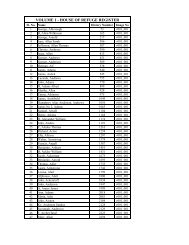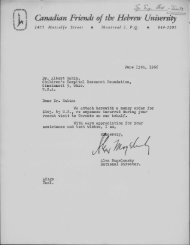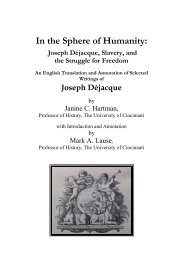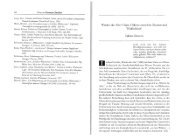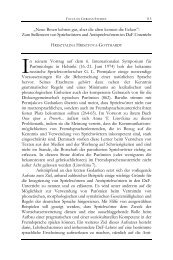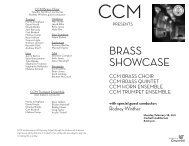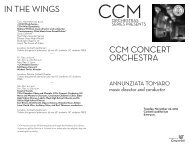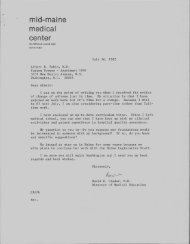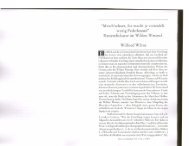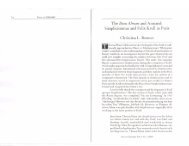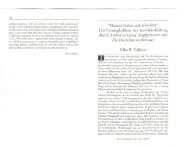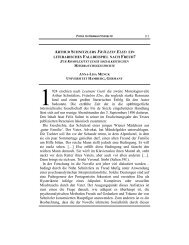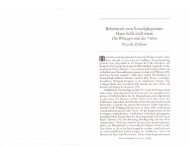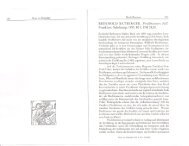Rilke's Die Turnstunde.pdf - UC DRC Home
Rilke's Die Turnstunde.pdf - UC DRC Home
Rilke's Die Turnstunde.pdf - UC DRC Home
Create successful ePaper yourself
Turn your PDF publications into a flip-book with our unique Google optimized e-Paper software.
82 THE POETICS OF DENIABLE PLAUSIBILITY IN RAINER MARIA RILKE’S “DIE TURNSTUNDE”<br />
issue with them see it as their task to defend Rilke’s honor against<br />
outlandish accusations of aberrant sexuality (and the related images of<br />
the coddled, effeminate, self-styled, hypochondriac artist). Both sides<br />
display misogynist tendencies, especially Demetz in his discussion of<br />
Phia Rilke’s unhealthy influence on her son and Kim in his criticism of<br />
David-Rhonfeld’s memories of Rilke. Both sides take part in the anxiety<br />
of the constitutive uncertainty of homosexual definition.<br />
It is on at least three levels, then, that the functions of policing<br />
and defining the boundary between sanctioned homosocial behavior and<br />
illicit sexuality occur: Rilke’s school experiences and his anxieties about<br />
depicting them, the textual strategies of “<strong>Die</strong> <strong>Turnstunde</strong>,” and the<br />
reception of the text and Rilke’s image. The narrative itself thus takes<br />
part in a larger discourse regarding Rilke’s sexuality. This set of<br />
discourses presents a range of textual responses to the anxiety attending<br />
the project of narrating the military boarding school, an<br />
epistemologically complex space given its self-contradictory and<br />
concurrent prescription of a homosocial “schreckliche Gesamtheit” and<br />
proscription of homosexuality. The deniable plausibility that Rilke<br />
creates in his journal entry regarding “<strong>Die</strong> <strong>Turnstunde</strong>” — the<br />
oscillation of his engagement with the topic of the boarding school —<br />
suggests the anxiety he experienced regarding this problematic,<br />
homosocial institution and its literary depiction. In the story,<br />
homosexual panic creates the necessity for and possibility of narrative<br />
innovation that turns on the limits of knowledge and the possibility of<br />
knowing or expressing too much, a possibility that the narrator in “<strong>Die</strong><br />
<strong>Turnstunde</strong>” endeavors to control through disavowal. Ironically, he<br />
retains narrative authority precisely by drawing away from it. A certain<br />
narrative distance both allows for the depiction of the totalizing<br />
homosocial environment of the military academy and presents the limits<br />
of the project. Taken together, Rilke’s letters, journals, and prose that<br />
touch on the military academy form a sparse and indirect, yet rich and<br />
compelling commentary on the relationship among homosociality,<br />
homoeroticism, and narrative. In fact, with careful attention, the<br />
narrator’s assessment of Krix might tacitly apply just as well to the<br />
possibilities and limitations of the reader’s knowledge: “Er weiß schon<br />
genug.”<br />
University of Chicago



